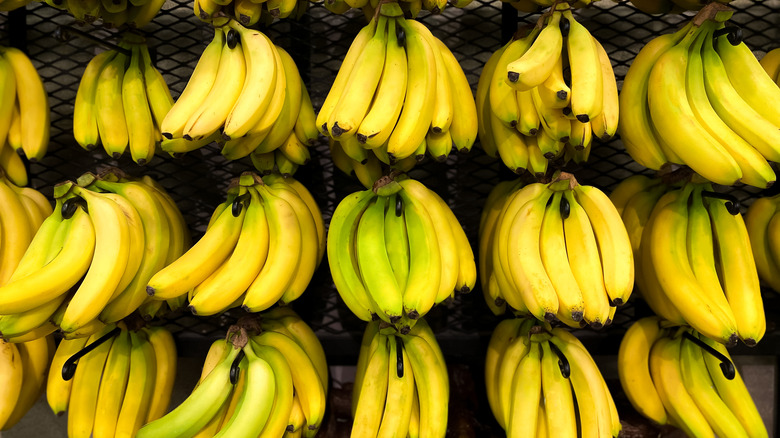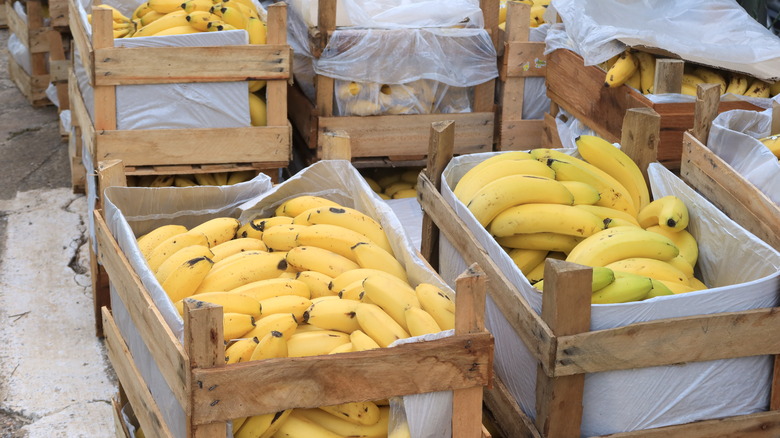Why We Might Be Seeing A Banana Shortage Soon
The U.S. relies on importing bananas, and about three-quarters of the country's supply are handled by port cities along the Gulf and East Coasts. In the first nine months of the year, the supply chain had already seen 2.2 millions tons of bananas go through those entry points. That's just a small fraction of the products handled by the thousands of dockworkers employed up and down the seaboard. So when those workers announced that an October 1 strike was looking more and more likely, the news sent shock waves through the country's supply networks — after all, many people eat a banana every day.
The problem is a conflict between workers' unions and the companies in charge. In addition to wanting guarantees of job security in the face of a world that's getting increasingly reliant on automation, unions are asking for their members to be guaranteed an incremental 80% raise that would be implemented over the next few years. Companies have been dragging their feet, leading the head of the International Longshoremen's Association, Harold Daggett, to issue some grim words of warning (via The OC Register): "A sleeping giant is ready to roar on Tuesday, October 1, 2024, if a new Master Contract Agreement is not in place."
Many products will be impacted by a strike, but bananas are unique
Bananas aren't, of course, the only product that passes through the ports that may be shut down when around 45,000 workers would go on strike. Shortages might also be felt regarding other key goods, including furniture, vehicle parts, semiconductors, and LED lights. However, bananas are a little different: They're perishable, which means that while a container of car parts might just have to sit a while, bananas will rot. So you may want to stock up now and store your bananas to last longer. To make matters worse, there are no real alternatives when it comes to moving bananas along the supply chain.
Jason Miller is a supply chain professor from Michigan State University, and in a post on LinkedIn, he explained that should a strike happen, widespread shortages were inevitable. "There is 0 chance of shifting all these imports though the West Coast, and the low dollar value per unit of weight for bananas means putting them on planes isn't economical ... Additionally, there isn't even close to enough air freight capacity to absorb all these imports."
Since they have a limited shelf life (you can refrigerate bananas), it's likely that a banana shortage will be one of the first consequences that consumers will feel if the strike goes through. Both Dole and Chiquita rely on ports in Delaware for importing fruit, including grapes, kiwifruit, pears, and clementines, in addition to bananas. The potential for food waste is staggering, shelves may very well remain empty for the duration of a strike, and what's left on shelves will likely spike in cost.

